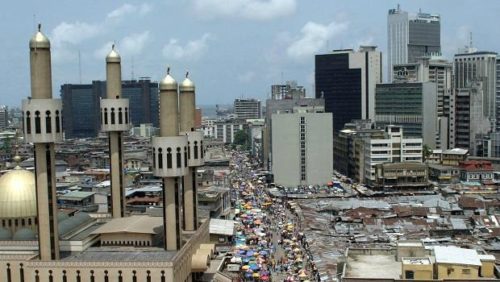
A report by the World Bank group has categorised Nigeria amongst the countries that did not show any progress in their economic performance from 1995-2008 to 2015-18.
The report titled “Africa’s Pulse”, which was released on Monday is an analysis of issues shaping Africa’s future.
The report lists out the bottom occupiers to consist of 19 countries: Angola, Burundi, Botswana, the Republic of Congo, the Comoros, Gabon, Equatorial Guinea, Liberia, Lesotho, Mauritania, Malawi, Namibia, Nigeria, Sierra Leone, Eswatini, Chad, South Africa, Zambia, and Zimbabwe.
According to the report, “These countries did not show any progress in their economic performance from 1995-2008 to 2015-18. For instance, their median economic growth rate decelerated from 5.4 per cent per year in 1995-2008 to 1.2 per cent per year in 2015-18.
Explaining the methodology used in the classification, the report stated that the taxonomy compares the average annual GDP growth rates during 1995-2008 and 2015-18 against predetermined thresholds.
The World Bank explained that these thresholds correspond to the bottom and top terciles of the annual average growth rates across 44 Sub-Saharan African countries between 1995 and 2008 (that is, 3.5 and 5.4 per cent, respectively).
According to the World Bank, “If a country’s economic performance declined from 1995-2008 to 2015-18, the country is categorized in the bottom tercile, which includes “falling behind” and “slipping.
“If a country’s growth rate remained invariant over time, between 3.5 and 5.4 percent in both periods, it is categorized in the middle tercile (or “stuck in the middle”).
“If a country’s economic performance improved from 1995-2008 to 2015-18, with a growth of more than 5.4 percent per year, the country is categorized in the top tercile, which includes the “improved” and “established” groups.”
Growth in Nigeria is projected to rise from 1.9 percent in 2018 to 2.1 percent in 2019 (0.1 percentage point lower than last October’s forecast).
The report notes that this modest expansion reflects stagnant oil production, as regulatory uncertainty limits investment in the oil sector, while non-oil economic activity is held back by high inflation, policy distortions, and infrastructure constraints.
“Growth is projected to rise slightly to 2.2 percent in 2020 and reach 2.4 percent in 2021, as improving financing conditions help boost investment,” it added.
Copyright Ships & Ports Ltd. Permission to use quotations from this article is granted subject to appropriate credit given to www.shipsandports.com.ng as the source.